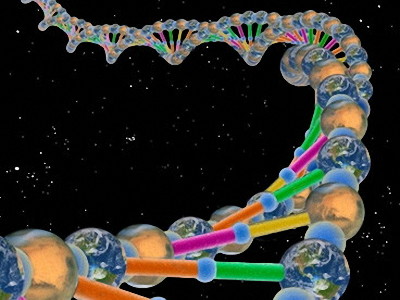Humanity had already discovered ``creatures on Mars'' but may have accidentally killed them

Humans have so far analyzed soil samples from the Moon, Mars, and asteroids in many attempts to find traces of life and the origin of life on Earth. About Viking 1 and Viking 2 , which landed on Mars in 1976 and were analyzed there, Dirk Schultz-Makhu of the Technical University of Berlin said, ``Looking back at the analysis method, scientists at the time were wrong. There is a possibility that I have committed a crime, 'he points out and discusses the problem that work to detect signs of life forms may have killed life forms.
We might have killed the only life we ever found on Mars - Big Think
https://bigthink.com/hard-science/accidentally-killed-life-mars/
In the mid-1970s, NASA sent two Mars probes to explore life. Both machines are equipped with gas chromatograph mass spectrometers, fluorescent X-ray analyzers, and other equipment, and have successfully collected soil samples and conducted surveys on site.
However, scientists at that time did not understand much about the environment of Mars, and speculated that life may appear if water is added in the same way as on Earth. In many surveys, techniques such as sprinkling nutrient solutions on soil samples were repeated.
In addition, surveys using gas chromatograph mass spectrometers involve heating soil samples and analyzing the vaporized components. Mr. Makuf pointed out that these actions, such as pouring liquid and heating, may have accidentally killed local life forms.

In fact, studies at the time detected trace amounts of chlorinated organic matter, which were interpreted as the result of contamination from the earth. Based on the idea that there would be no life on Mars without organic compounds, most scientists at the time settled on the idea that the existence of life forms was negative or inconclusive.
Considering the possibility that life forms may exist, Makuf said that one idea that could be proposed is that ``life forms living on Mars may have hydrogen peroxide in their cells.'' says. Hydrogen peroxide also has the advantage of keeping water liquid in the subzero temperatures of Mars, preventing the formation of ice crystals that can rupture cells, and it also reacts with surrounding organic molecules to produce large amounts of carbon dioxide. there is. Viking 1 also detected carbon dioxide, but based on this idea, it seems that carbon dioxide may also include carbon dioxide derived from living organisms.

'Half a century later, things have changed a lot,' Makuch said. 'Thanks to confirmation by the Phoenix probe in 2008 and later by the Curiosity and Perseverance probes, we now know that organic compounds unique to Mars are actually present. We know that they exist, and although they are different from what Viking Age scientists expected, it is unclear whether they originate from biological processes or from abiotic chemical reactions unrelated to life. 'We don't know if it will, and as I have long advocated, we need a new Mars mission dedicated to the search for life to test this and other hypotheses.' I was.

Related Posts:
in Science, Posted by log1p_kr







